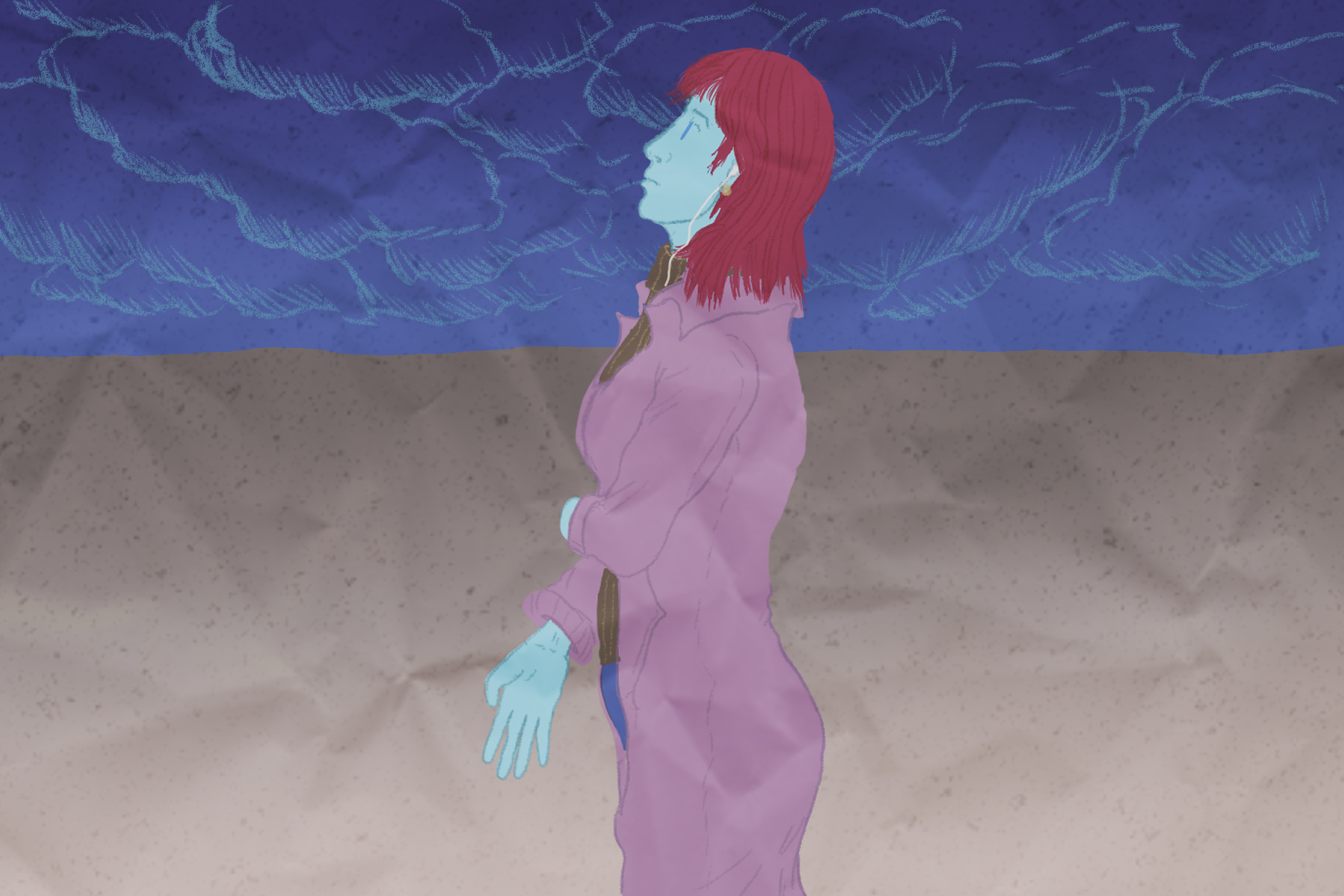HBO’s “Big Little Lies,” based on the critically-acclaimed No. 1 New York Times Bestseller by Liane Moriarty of the same name, has been a big hit. Although the second season was released last year, I was finally able to complete the show, and I was blown away by the ending. I was mulling over why it took me so long to finish the series and I realized that, besides the fact that my attention span for watching shows is limited, I didn’t want the show to end. The ending was perfect, and I finally understood why people say it should’ve ended when it did. I recommend “Big Little Lies” to anyone who hasn’t seen it.
For those who don’t know, “Big Little Lies” follows three mothers: feisty Madeline Mackenzie, elegant Celeste Wright and young Jane Chapman. Each mother has a totally different life, and each one holds a dark secret.
Madeline is a housewife with “hobbies,” a new family with an ex-husband and a rebellious teenage daughter. Celeste is the typical beautiful housewife who gave up her promising law career for her husband and twin boys. Jane is the young mother of Ziggy (my personal favorite) that just moved into town and was adopted by Madeline.
After a series of events that led to a devastating yet satisfying “Big Little Lies” season finale, those three turn into the Monterey Five, with the addition of Bonnie Carlson and Renata. Bonnie is Madeline’s ex-husband’s wife and half-sister to her eldest daughter. Renata is a working mother who is currently a friend and ally but was an enemy.
https://www.instagram.com/p/B0lVIU4JKVz/?utm_source=ig_web_copy_link
Although this a fictional story full of unexpected and sometimes unrealistic drama, this show brought up many issues of psychological trauma. I’m going to break these up into five points.
Spoilers ahead! If you haven’t watched the show and plan to, I suggest you stop here … then come right back.
Jane’s PTSD
“YOU’RE NOT A MONSTER,” she screams in response to Ziggy telling her that he overheard other mothers call him a “little monster.” Jane moved away to have a fresh start, not only for herself, but for her son. Imagine running away from your abuser just to run right into his backyard — with his son at that.
Jane was raped by Celeste’s husband, Perry Wright, one drunken night when she went out with her friends. Her decision to keep Ziggy, which sometimes rape survivors choose to do, added to the PTSD that she is going through.
Three main symptoms of PTSD, as told by Lindsay Burgess from Brit+Co, is re-experiencing, avoidance and hyperarousal: “Re-experiencing is ‘feeling like you are reliving the event through flashbacks, dreams, or intrusive thoughts.’” Throughout the first season, Jane has many flashbacks of that night — before, during and after the tragic event. She is constantly running, figuratively and physically, away from the man that intruded on her body.
It didn’t help that on the first day of school, Ziggy was accused of choking little Amabella in front of the entire school. The scene was cringey: The teacher gathered all the parents and students at the end of the day to put the spotlight on the crisis and had Amabella point out her assailant in front of everyone.
It was completely unfair to Ziggy, branding him with a reputation when he was already struggling with the move. Although young Ziggfield maintained his innocence to his mother, as a viewer, you wonder if she stuck by Ziggy’s side due to her past. Did she truly believe him, or did she just desperately want to believe that he was nothing like his father? Which he isn’t.
Celeste Mixes PTSD With Grief
One of the things that makes “Big Little Lies” so great is that it pushes you to think beyond the surface. I.e., Celeste’s torrid relationship with her abusive husband. Yes, he is abusive, but not all domestic violence situations are black and white. Aside from the twins, Celeste found herself in a state of confusion when it came to her marriage.
In her mind, since she fought back when he would physically harm her or when she knew the fights would lead to sex, she enjoyed it. Perry acknowledged that he had a problem, and Celeste didn’t see herself as a victim. She saw herself as a symptom of Perry’s rage.
Even in the book, which goes into greater detail of Celeste’s thoughts, she noticed the pattern of how sometimes she would just start fights to stop prolonging Perry’s next blowup, restarting the cycle and returning to the calm before the storm. However, Celeste could no longer deny the bruises and the effects the abuse were having on her family, pushing her to eventually make plans to leave him.
“It’s a very common dynamic to have that cycle of abuse in abusive relationships, where [the victim] would very likely trigger some sort of argument or conflict to bring on the abuse because you know it’s coming and it gives you a sense of control,” says Nelson in The Cut.
Even after Perry’s death, Celeste started taking prescription pills to numb the pain she was feeling and started engaging in rough causal sex with people, trying to reconnect with her lost love.
https://www.instagram.com/p/Bx5NlDLJ6a-/?utm_source=ig_web_copy_link
She would watch old videos of Perry and even pleasure herself to them in hopes of latching on to a detrimental love, but a love that she knew. It took her therapist to remind her that no matter how much Perry loved her, he still abused her. And the only way she could move on was for her to realize that.
Max Wright Continues the Generational Curse
Ziggy wasn’t the son carrying Perry’s genes that needed to be worried. It was Celeste’s son. At the beginning of Season 1, as school started for the young scholars, Ziggy was accused of strangling Renata’s daughter, little Amabella, leaving marks and bruises on her neck.
By the end of the first season, it was revealed that it wasn’t Ziggy who choked her but Max who did it. And in the finale of Season 2, when Celeste is representing herself in court against her mother-in-law for custody of her kids, a piece of evidence is used to prove Perry’s abusive behavior — a video taken by the twins of Celeste being physically assaulted by Perry.
Celeste truly believed that because Perry wasn’t abusing her boys, that he was a good father to the twins, that they weren’t affected by their parents’ toxic relationship. But what a lot of parents and adults in general fail to realize is that kids are a lot more intelligent than we give them credit for. They’re people too, just like us. They’re just younger. Inexperienced, but not dumb.
“Aggression between parents is traumatic and is likely to affect your children’s beliefs about relationships in the future,” explains Dr. John D. Rich from Psychology Today. “Your child’s conceptualizations about what relationships should look like are primarily based on your relationship with your spouse.”
Celeste was a victim; that’s one thing that will never change, but so were her boys. They witnessed their mother’s abuse, and at such a young and impressionable age, they’re susceptible to anything and everything. And this was a big issue brought to light by the show. It was iconic because a lot of the time, in stories such as these, people believe that just because the children survived physically unscathed, they’re mentally unscarred as well. “Big Little Lies” shows us otherwise.
Perry Wright’s Sordid Past
As far as villains go, Perry Wright is the typical narcissistic, maybe even sociopathic, abuser. He is charismatic and very handsome, proving that one shouldn’t judge a book by its cover. There is no doubt that Perry loves Celeste, but there is a right way to love somebody and a wrong way to love somebody — dragging them on the floor or covering their body with bruises is definitely the wrong way to do so.
There is no excuse for Perry’s actions; he acknowledges them himself in Season 1 when they went to therapy together and each time, he hits Celeste then immediately promises her he’s going to get better. However, Season 2 of the show delves deeper into his past with the arrival of Perry’s mother, Mary Louise (played by the iconic Meryl Streep), who is not only in denial about her son’s sickness, but even tries to take away Celeste’s sons when she is recovering from the years of trauma her son inflicted.
https://www.instagram.com/p/B0GU3NeJ4g4/?utm_source=ig_web_copy_link
It is revealed in the Season 2 finale, during the final battle between Celeste and Mary Louise, why those who live in glass houses shouldn’t throw stones. Mary Louise, much like Celeste, was going through her own trauma. She ran the car off the road with young Perry and his brother in the back seat, and unfortunately, his sibling didn’t survive.
“Look what you made me do!” Mary Louise blamed Perry for the accident, for distracting her, causing her to lose her temper. She beat him constantly after that. “Hurt people hurt people” is not just a school time phrase. Mary Louise is just as much to blame as Perry for the pain he inflicted on Celeste and Jane, and for starting a generational curse these mothers will have to fight their entire lives to reverse in their sons.
Bonnie’s PTSD
Although she was more of a recurring character in Season 1 of “Big Little Lies,” after the season finale, there was no choice but to delve deeper into Bonnie’s past.
The death of Perry caused the five women to put aside their differences and join forces to stay out of prison, and meanwhile, they formed an unlikely friendship. The “Big Little Lies” showrunners had no alternative but to give Bonnie a backstory, and even though it could’ve been more formulated, it does give the once one-dimensional character some depth.
Bonnie’s parents visit, and the audience finally meets the infamous mother who Madeline’s eldest daughter adores and Madeline envies. As the season continues, Bonnie’s flashbacks and anxiety intensifies, and you start to see how complicated Bonnie’s relationship with her mother truly is.
Her mother ends up having a fatal stroke, and as Bonnie visits multiple times, she begins to confess all the pain and resentment she built toward her mother throughout her childhood. Bonnie’s biggest confession was that she pictured her mother when she pushed Perry to his death.
As previously stated, the “Big Little Lies” writers didn’t fully develop Bonnie’s backstory, so it’s not fully clear what happened to young Bonnie — just that her mother was violent at times.
However, it goes to show how real PTSD is. It can come back in the most unexpected ways, especially if bottled up — which it looks like Bonnie was doing for years, using her “zen” persona to cover up her true feelings buried inside. Proven with Jane as well, if you keep running away from your problems, one day, you might just run right into them.
















